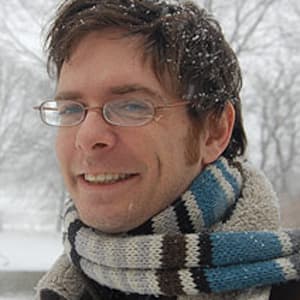Advertisement
Bread And Puppet’s Peter Schumann: 'What Will Happen When I’m Not Around?'
“The theater is in a stage where we have to figure out what will happen when I’m not around,” said Peter Schumann, founder of the landmark Bread and Puppet Theater, in a public talk at the end of a recent, day-long symposium “Bread and Puppet 2013: Celebrating 50 Years of Sublime Arsekicking Puppetry” at Boston College.
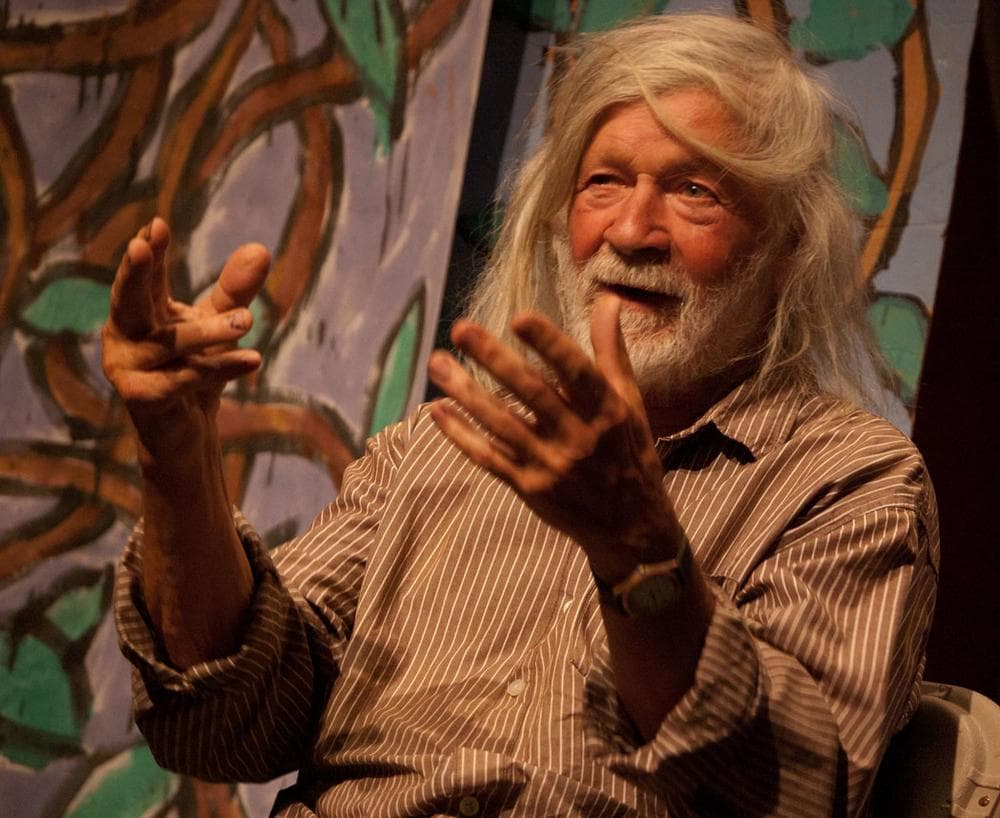
Schumann, who turned 79 in June, had spent much of the Sept. 14 conference sitting in the second row of a BC lecture hall with his longtime wife Elka observing friends, colleagues and admirers heap accolades on his Vermont-based radical, political, puppet, mask and pageantry theater.
The company maintains a full schedule, including performances at West Park Church in New York in November and in Boston early next year. An exhibit of two immersive installations, “Peter Schumann: The Shatter,” is scheduled to be at the Queens Museum of Art from Oct. 13 to March 9.
Despite, the theater’s widespread influence on both puppetry and street protest, Schumann downplays the company’s effect. He seems both frustrated by and resigned to the limits of his abilities to create political change—in particular, to promote peace.
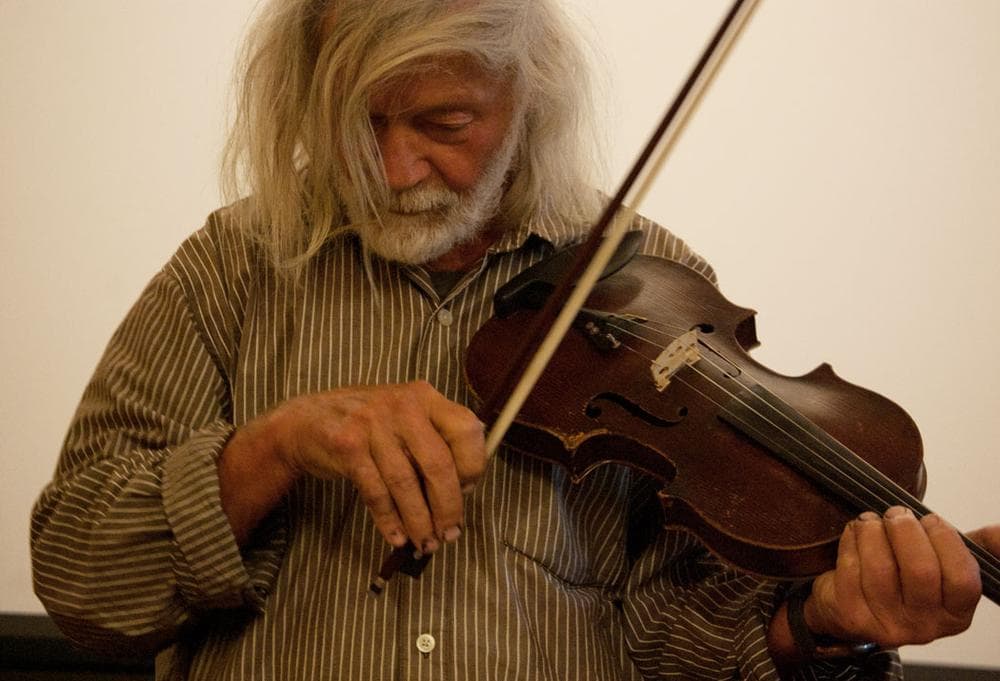
The theater’s cumulative accomplishment, Schumann insisted, only half jokingly, in a “Fiddle Lecture” just before symposium’s dinner break, “is on par with grammar school soccer, definitely not on par with high school ice hockey.”
“Bread and Puppet is for good reasons largely absent from the culture and history books of our times, but has succeeded to cultivate its nonsuccess successfully,” Schumann proclaimed while accompanying himself on violin. “The Bread and Puppet legacy is puppetry as a vehicle for the free offering of the stuff of life—bread—in a money-enslaved culture.”
Earlier in the day longtime Bread and Puppet performer Paul Zaloom recalled Schumann once telling him that “the problem was that the whole civilization was rotten.”
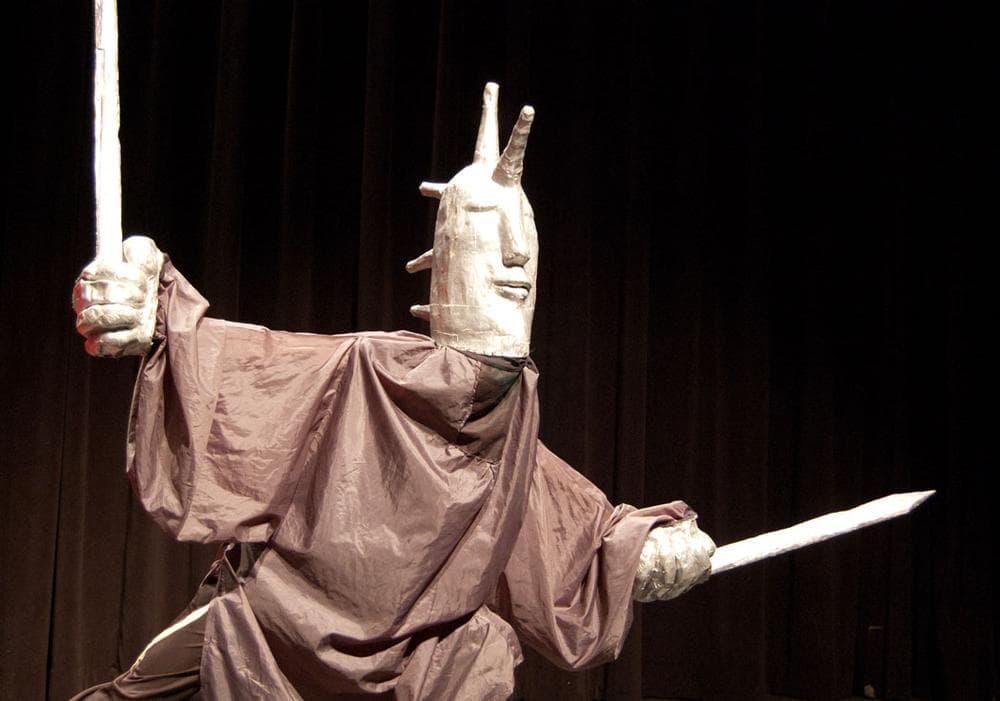
Bread and Puppet began in New York in 1963 with shows criticizing poor housing conditions and the Vietnam War. As a boy in his native Germany, Schumann witnessed the devastation of World War II. At its core, his company has always been an anti-war theater. Schuman moved to Vermont in 1970, eventually settling onto a farm in the town of Glover where the company performed in the property’s fields, forests and barns—as well as launched international tours. Bread and Puppet remains an experimental theater, operating mainly outside the usual aesthetics and finances of the art, theater and dance worlds.
“To basically be out of the entertaining industry, but also to be out of the art-making and art-presenting industry is tricky,” Schumann acknowledged.
This was after an hour of revival performances spanning the theater’s past five decades. He sat on a blackbox theater stage for a “talkback” conversation with symposium organizer John Bell, the director of the University of Connecticut’s Ballard Institute & Museum of Puppetry who has performed with Bread and Puppet since 1973.
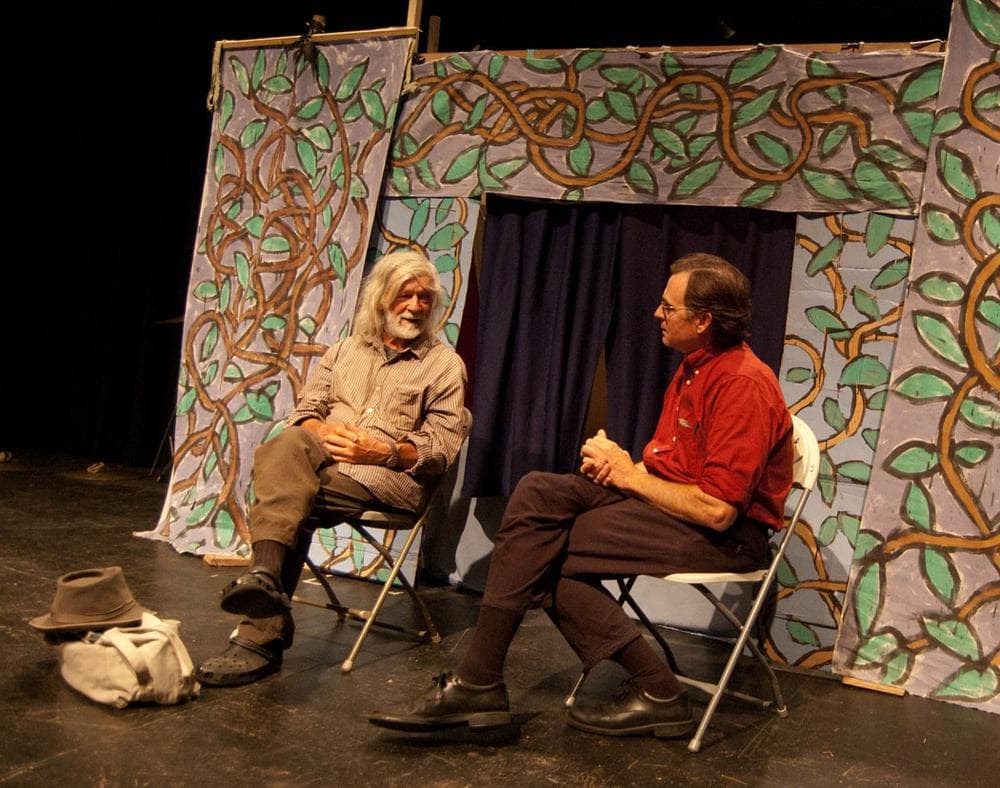
“Some of the forms in the theater are easily redoable,” Schumann said to Bell and the end of the day crowd. “And others are not. The style of living that goes along with this kind of theater making is an integral part of the art form. … If you take that away you wouldn’t get the theater either.”
The Glover farm remains an asset. “It exists as a location, as a facility, as a learning place, as a clay yard with tons of river clay available, workshops to make sculpture,” Schumann said. “It exists in that setup, which is a setup for big production. … It has the meadows.”
He didn’t offer answers of what the theater—which is dedicated to realizing his vision using puppets and masks that he sculpts—might do without him. Rather he mulled questions. “The connection of the bread-making is a serious one. And I don’t know if that survives either,” Schumann added. “That department is also very underdeveloped.”
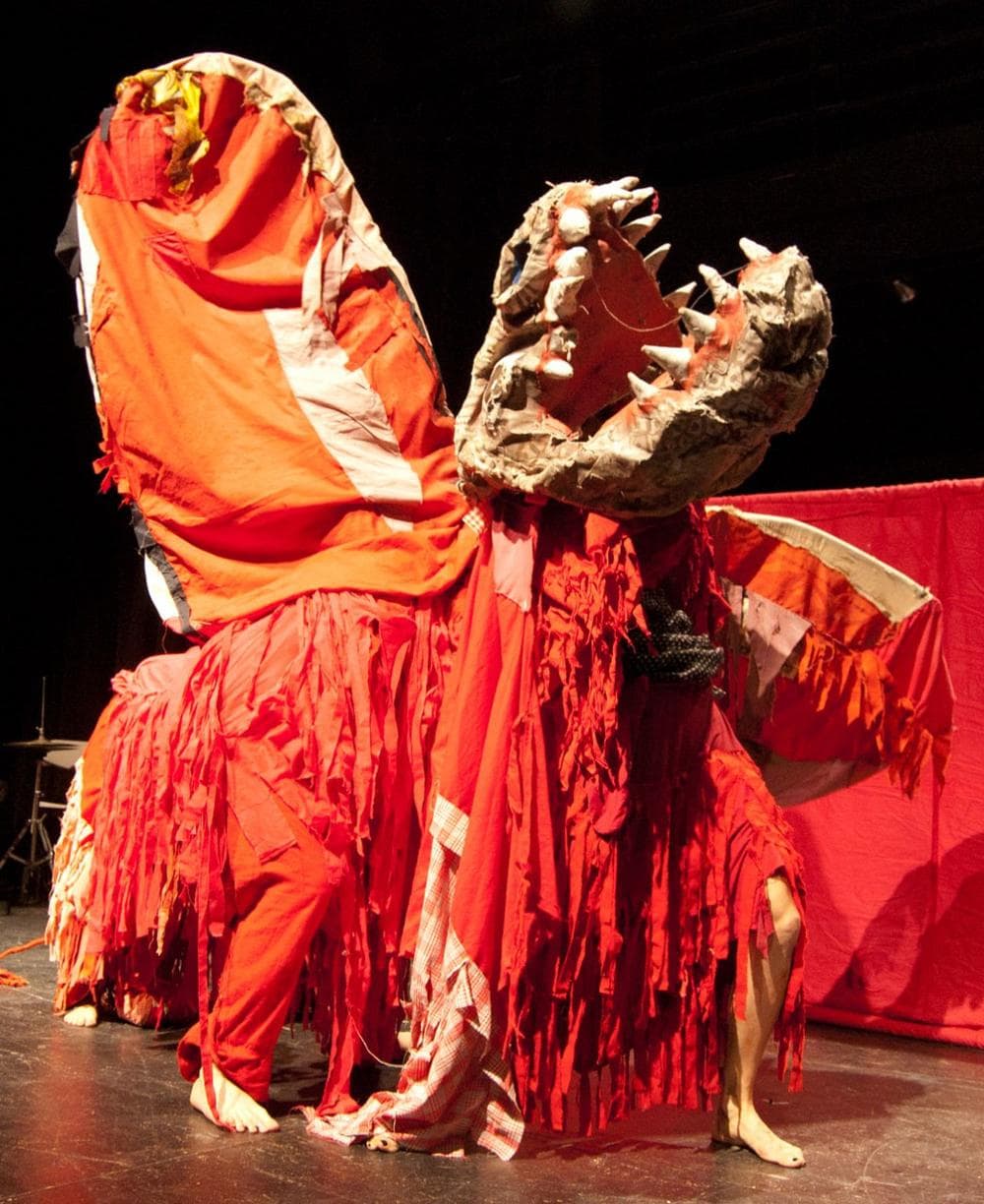
“In a real sense we are not the Puppet and Bread Theater, we are the Bread and Puppet Theater. The real purpose is to create the occasion for the eating of bread together,” Schumann said. “That’s a ceremony or a celebrating that in older cultures existed by education. That education doesn’t exist anymore.”
He said the idea for giving out bread at the company’s shows came before the theater arrived at its name.
“It just really quickly dawned on us that eating bread is a really good reason to have people come and have a puppet show,” Schumann recalled of early 1960s performances mainly attended by New York neighborhood kids. “The chewing helps people see. We gave out bread before the show. We noticed that people were much more at ease … more receptive to what they saw.”
“If you want a good loaf, you need a passionate baker,” Schumann said as he continued contemplating the theater’s future. “We have not developed the school of passionate baking yet.”
Previously:
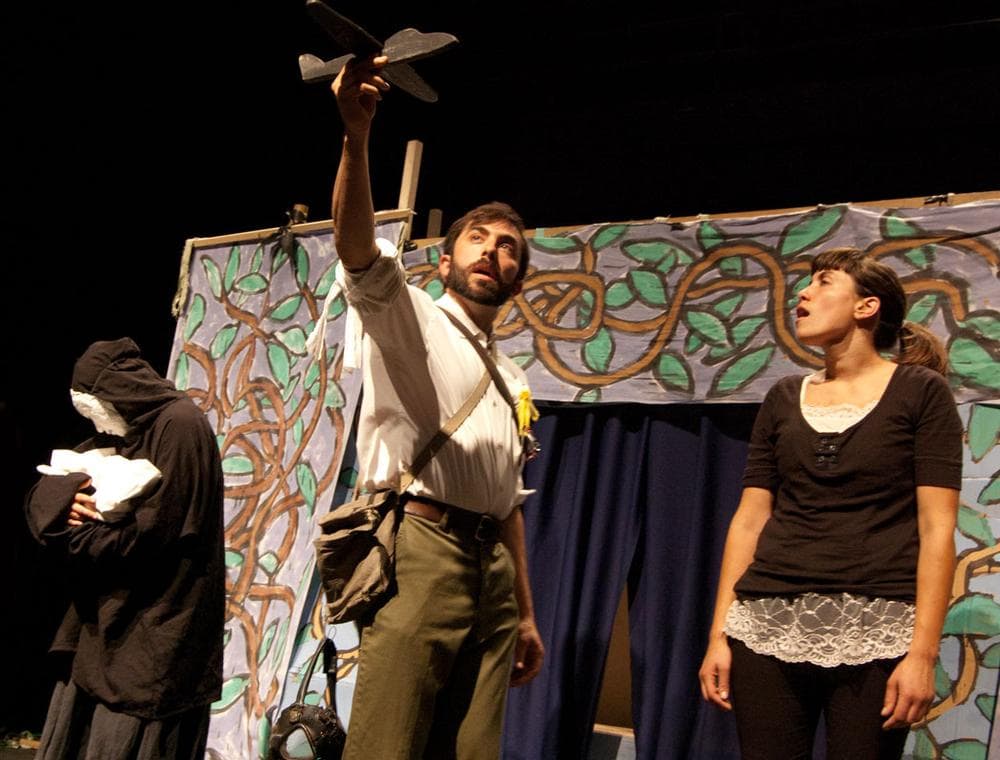
This article was originally published on September 23, 2013.
This program aired on September 23, 2013. The audio for this program is not available.
